“The Abducted Are Our First Cause”… Mothers’ Cry in Sweida
Every Tuesday, women from the Sanad Association and their supporters gather in the town of Shahba, Sweida. They hold up photos of their abducted sons and daughters, vowing not to stop their weekly sit-in until all the kidnapped return safely.
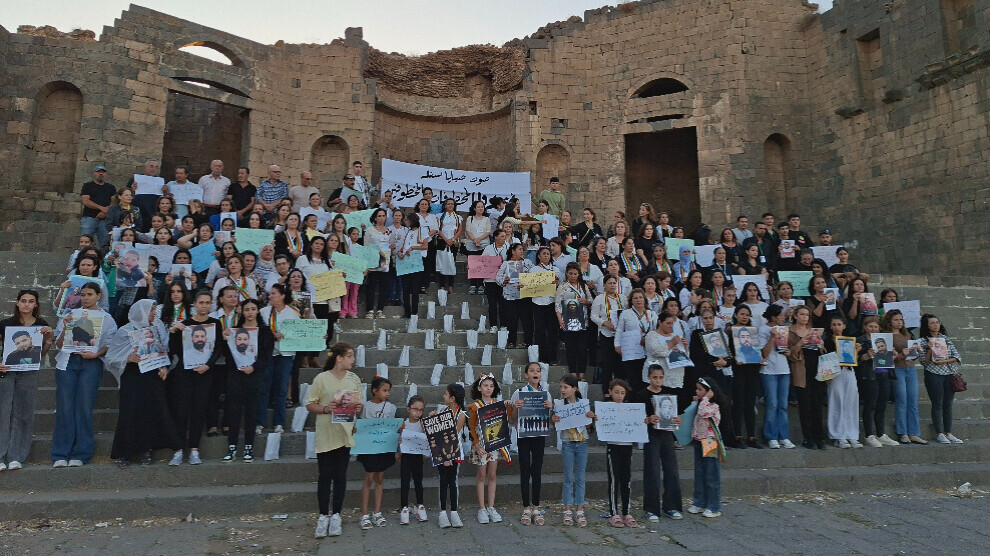
Rochelle Jounior
Sweida- At a heritage site that symbolizes struggle and freedom, the sit-in has taken on ritual significance. The women light candles and take part in artistic expressions, where brushes and colors transform pain into a form of resistance. Their aim is clear: to pressure the authorities to reveal the fate of the abducted men, women, and children.
‘The Abducted Are Our Dignity’
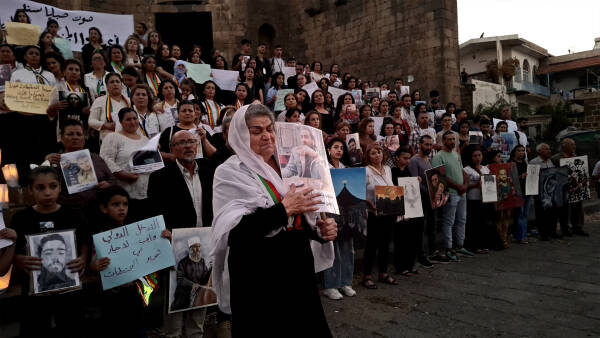
Huda Khaddaj, a retired teacher and member of Sanad, said:
“We are a group of activists, educated women, and housewives who came together during this crisis to support the families of the abducted. Since the beginning of the attacks on Sweida, we have stood here every Tuesday, demanding their release, because they are our cause and our dignity. We will not forget them. We will continue standing, no matter what, until we know their fate—especially the young women and children. I hope our next gathering will be a celebration of their freedom.”
She added:
“Women of Jabal al-Arab were raised on values of freedom and dignity. We were born free and we will remain free. We will never accept that our women be treated as captives, nor that their place in society be diminished.”
‘Mothers Who Cannot Sleep’
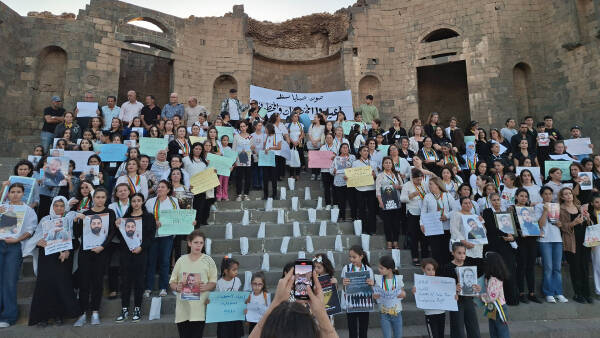
Rania Nassif, also from Sanad, explained:
“We join this weekly protest to demand the truth about our sons and daughters who were forcibly disappeared in unknown locations. Their mothers wait anxiously, sleepless, longing for them. Our demand is simple: to know their fate. We will never stop calling for them. We hope this protest will be the last, and that they will return free. Our joy and victory are incomplete without them.”
She appealed to the international community:
“From the very beginning, we have called on the United Nations and the International Criminal Court to take this case seriously. The mothers, in particular, have the right to know what has happened to their children.”
‘Raising Our Voices from the Heart of Heritage’
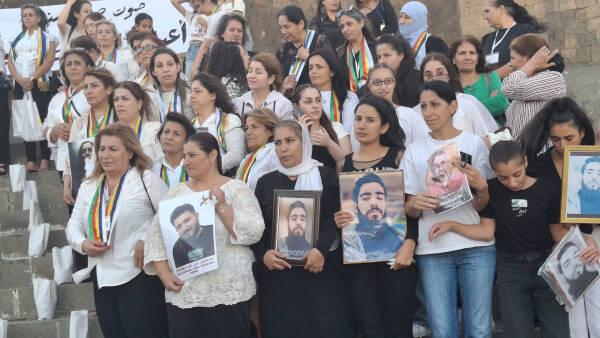
Wafaa Khaddaj, from the group Basmat Watan (Nation’s Imprint) in Shahba, emphasized the symbolism of the place:
“This heritage site carries deep meaning for us—it reflects our long history of struggle for freedom. From here, we raise our voices with determination, demanding the return of our abducted daughters and sons who were taken from their homes unarmed, guilty of nothing but being defenseless.”
‘Abducted Without a Crime… By What Right?’
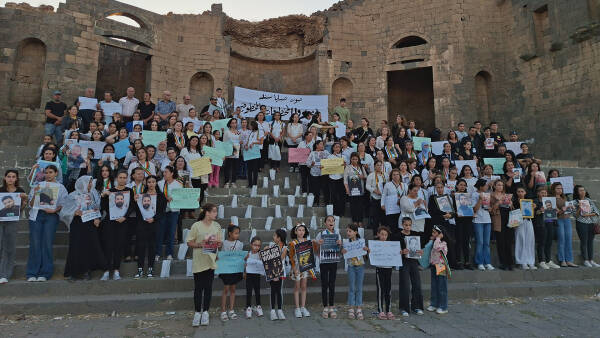
Munira al-Qabbani, a retired teacher, recounted her own story:
“One of my relatives, the sole provider for his family, was abducted on July 15 while unarmed. By what right was he taken? What injustice is this? We call on the world to stand with us, even though we often feel abandoned in this crisis. We demand the return of innocent people who were kidnapped without cause, without weapons, and without guilt. We are a peaceful people who have always welcomed others into our homes—yet we were repaid with betrayal.”
‘Art Is Also Resistance’
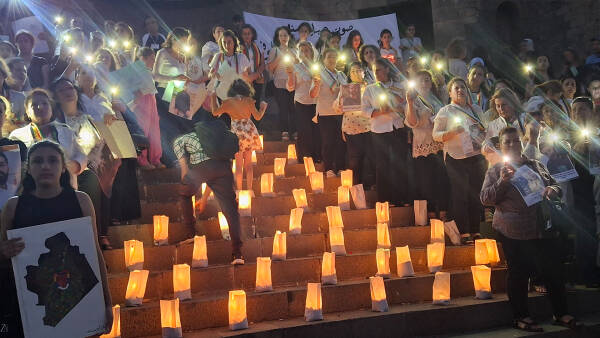
Sahar Makarem, an artist from Sweida, expressed her stance with brush and color:
“Through our art, we sought to reflect the grief of mothers longing for their children, of families still waiting for their loved ones, and of those who lost sons and daughters in the attacks carried out by jihadists from Hay’at Tahrir al-Sham. Today we stood united in one protest, painting our pain and demanding justice. Because art, too, is resistance.”
